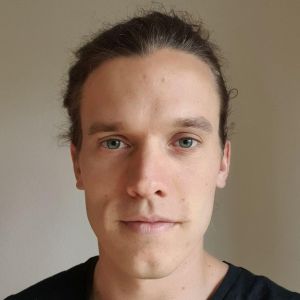Bionote

Elias Marks is a Ph.D. student at the Photogrammetry Lab at the Rheinische Friedrich-Wilhelms-Universität Bonn since February 2021. He received his M.Sc. in Artificial Intelligence and Robotics from “La Sapienza” University of Rome with a thesis on Perception and path planning for Mobile Robots. He previously worked for Fraunhofer Institute for Manufacturing Engineering and Automation in Stuttgart.
Presentation Abstract
The natural world presents complex organic structures, such as tree canopies, that humans can interpret even when only partially visible.
Understanding tree structures is key for forest monitoring, orchard management, and automated harvesting applications.
However, reconstructing tree topologies from sensor data, called tree skeletonization, remains a challenge for computer vision approaches. Traditional methods for tree skeletonization rely on handcrafted features, regression, or generative models, whereas recent advances focus on deep learning approaches. Existing methods often struggle with occlusions caused by dense foliage, limiting their applicability over the annual vegetation cycle.
In this work we developed a novel approach for tree skeletonization that combines a generative denoising diffusion probabilistic model for predicting node positions and branch directions with a classical minimum spanning tree algorithm to infer tree skeletons from 3D point clouds, even with strong occlusions.
Our experiments show the superior performance of our approach on real-world data and competitive results compared to state-of-art approaches on synthetic benchmarks.
Co-Author: Cyrill Stachniss